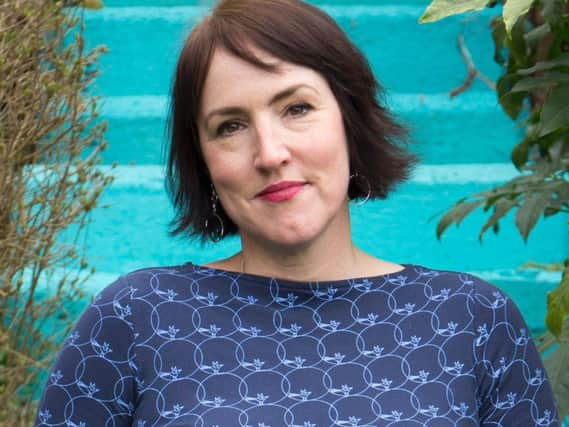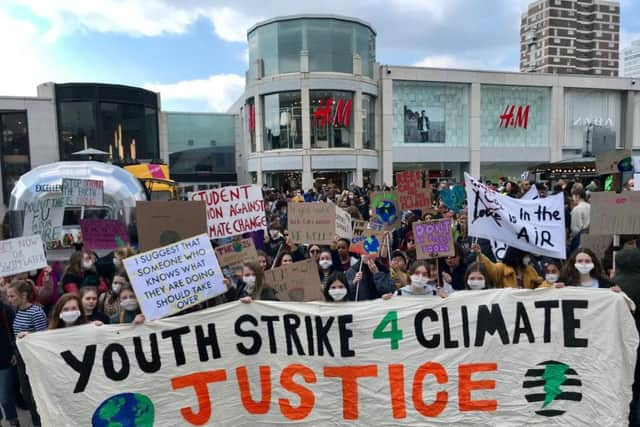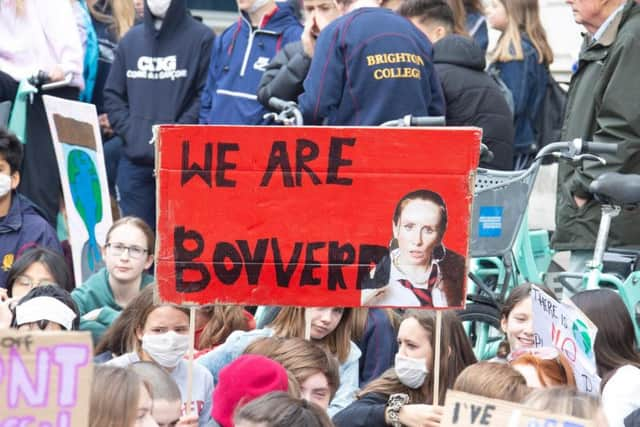It’s time to talk to kids about climate change
This article contains affiliate links. We may earn a small commission on items purchased through this article, but that does not affect our editorial judgement.


Anecdotal memories can easily help to feed our Ostrich tendencies. We stick our heads in the sand and tell ourselves that the weather has always had its ups and downs. But even the most ardent deniers are becoming, ironically, an endangered species. The science and the theories and the evidence is stacking up towards something terrifying and, surely, undeniable.
We are within a heartbeat, historically speaking, of passing a point of no return. In the moments that I let this fact in, I feel my soul go numb. Extreme weather is no longer just nature doing its thing. It is a result of the most fundamental, hubristic human stupidity and greed. It is quite simply our fault.
Advertisement
Hide AdAdvertisement
Hide AdLike my children now, I grew up in a time when the potential for impending Armageddon was also very real. In 1982 my Greenham-Common campaigning mum gave me Raymond Briggs’ ‘When the Wind Blows’ for Christmas and I spent the next couple of years living in not unreasonable fear of nuclear war. I had studied the Government’s ‘Protect & Survive’ leaflet in detail. I had timed my journey home from school to try and work out if I would be able to get back to my family before the bombs hit.


It could be argued that nuclear war would be an even greater disaster than irreversible climate change in terms of the survival of the natural world. But that horrific potential is more easily reversed by changing the behaviours and priorities of a few leaders. To reverse the potentially life-threatening risks of climate change, however, requires a complete systemic transformation on global, state and individual levels. And not only that; it may already be too late.
These reflections don’t help me comprehend the incomprehensible. Trying to absorb the catastrophic truths of the potential of climate change to destroy everything I know and love, is like looking up at the night sky and trying to comprehend that we live in an infinite universe; or the fact that one day I will no longer exist. Is this why, despite climate change being the single biggest issue affecting every individual on the planet right now, I have barely talked to my children about it? Like George Monbiot warns us in his book ‘Heat, How We Can Stop the Planet From Burning’ the trouble with humans is human nature. We are great in rising to the challenge of clear-cut crises; but when it comes to climate change, we are like the proverbial frogs: blithely swimming around in the pot, not noticing until it is too late that the water is boiling.
I strive to be an honest and open parent. I talked to my kids about how babies were made from an early age. We have debates and discussions on drink and drugs; cyber safety; diet; wellbeing; politics; ethics – but rarely climate change. And now I am shamed, because the children and young people are taking things into their own hands: organising ‘Climate Strikes’ and global campaigns; talking about the elephant that I as a parent have been leaving in the room. I have tried to examine and reflect on why I have been so silent. Perhaps it is because the minute my puny human brain starts to imagine a desolate future for my kids and future grandkids I simply freeze. Perhaps it is because I don’t know what to say; perhaps it is because I don’t want to scare them; perhaps it is because I feel some kind of collective guilt. Whatever the reason, I have come to one conclusion. It’s time to talk.
Advertisement
Hide AdAdvertisement
Hide AdYoung people have the odds stacked against them already. My generation and the successive governments of the last 40-odd years have lumbered them with low wages, astronomical house prices and rents, zero-hours contracts, bankrupt schools and a higher and further education system that is on its knees. No wonder they have record low levels of wellbeing. Whatever way you look at it, this generation has been well and truly shafted. In light of all this, the least I can do is have the courage to face up to the realities of climate change, and work with my kids in a shared fight for their futures.


The next big question I come up against is how? How do I introduce and explore these potentially devastating truths in an honest, constructive but also sensitive way? My cousin, Rebecca Wieloch, is an experienced children and young people’s counsellor and I asked her how the threats of climate change affect some of the young people she works with. One thing that was clear, she said, was that thinking there may be no future adds stress and pressure, and makes things worse, particularly for those already suffering from depression or anxiety. The young people she talked to were also clear that parents have a real responsibility to act. One girl told her:
“We are inheriting the mess of all the other generations. How much of the planet will be left for our children and grandchildren? Parents should help make a space, so children’s voices can be heard. Parents with their greater power, and their blame, should be far more proactive in fighting for a protective future for their offspring.”
A quick web search under how to talk to kids about climate change without scaring the life out of them comes up with a range of helpful articles. The key points are consistent across all of them.
Advertisement
Hide AdAdvertisement
Hide Ad1) Keep your discussion factual and age appropriate; use reliable resources and a bit of science is great, but don’t overwhelm them
2) focus on positives; discuss what you can do as individuals and as a family, share success stories that have already happened such as the global effort to repair the Ozone layer
3) teach them to appreciate nature and spend time outdoors
4) Help your kids have agency; support them if they want to campaign or act and share some good social media links if they are old enough
There is a terrible irony that although climate change is entirely our fault, we are also the only species on the planet that knows it. As adults we need to take responsibility on every level.
Advertisement
Hide AdAdvertisement
Hide AdFor many of us the effects of climate change may feel very distant – but if you look close enough you will see it is happening in your own backyard. When I moved into my house in the suburbs of Brighton after years living in the city centre, I was blown away by the wildlife in my garden. Slow worms, swifts, toads, newts and bumble bees were among my new neighbours.
Only 12 years on from then all of these species are in decline. UK Common Toad numbers are down two thirds on 30 years ago, and the decline in swifts, who feed on the wing, is inextricably linked to the devastating reduction in insect numbers.
I walk my dog in the local woods. It’s impossible, on a day like today when the sun is warm on your skin and the tips of the branches are exploding with the vivid-green of new leaves to not appreciate the sheer beauty and joy of nature. But whenever I feel this, a sense of sorrow soon follows. What if this is nature’s swansong? The last few decades of a world that is recognisable and supportive of human existence? Sometimes I feel like the earth should shrug us off like an infestation, and start again. How much better might things be without us, the most intelligent, but also the most destructive of beasts? But then I think of my children, and I have to cling on to a desperate hope that we can find a way forward that harmonises with, rather than ravages, the world we have been lucky enough to find ourselves in. It only took us 200 years of industrial revolution to make this mess, but we don’t have anything like 200 years to put it right.
Hope and progress exists on every level. It exists at the level of the smallest act of kindness or compassion up to the decisions of global leaders. It exists in my giving a dollop of jam to a tired bumble bee in my garden to international policy making. And similarly; as the terrors of the systemic tragedies of climate change, deforestation, methane release and species collapse loom like storm clouds on our horizons; the potential answers lie both in the decisions made at our kitchen tables right up to the decisions made by those in power. And if one universal truth is clear to me, it is that those in power rarely make the right decisions unless the people around the kitchen tables make them.
Advertisement
Hide AdAdvertisement
Hide AdAfter hearing a news article about climate change recently my youngest anxiously asked me if I knew when the world was going to end. The question stopped me in my tracks and I fobbed him off with a noncommittal answer. Now I know what I should have said: that we can blindly hope, or have agency – we can ignore, or hold to account. Ultimately, action is power, and it’s time for our family to act.
Corinna Edwards-Colledge is a novelist and journalist living in the city. To find out more about her work and her latest novel, Argemourt, visit: www.corinnaedwards-colledge.co.uk / or www.facebook.com/corinnaauthor